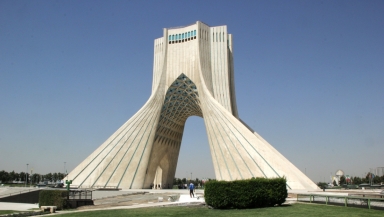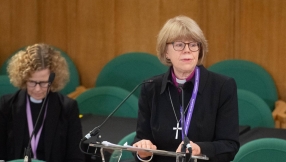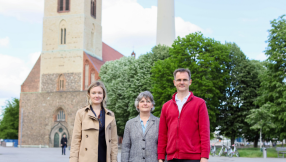
In a disconcerting turn of events, a sixty year old Iranian Christian convert, Mina Khajavi, finds herself on the brink of a six year prison sentence, accused of "acting against national security by promoting 'Zionist' Christianity".
Khajavi's ordeal commenced in 2020 when she was apprehended, and her sentencing process then unfolded in 2022. These legal proceedings also involved two other individuals: Malihe Nazari, a fellow Christian convert who received a parallel six year sentence, and Iranian-Armenian pastor Joseph Shahbazian, handed a more severe ten year sentence.
While Shahbazian and Nazari commenced serving their sentences a few months later, Khajavi faced a temporary reprieve. A car accident had left her with a severely broken ankle, necessitating the insertion of metal plates. Despite enduring persistent physical challenges, including walking with a limp and developing arthritis, Khajavi's respite came to an abrupt end on January 3 when she was instructed to report to Evin Prison within five days.
In a somewhat contrasting turn of events, Shahbazian and Nazari, both convicted on similar charges, managed to secure early release.
Shahbazian's initial two year sentence was further diminished by an appeal-court judge citing insufficient evidence under Article 498 of the Islamic Penal Code, related to organising groups perceived as threats to national security.
By September 2023, Shahbazian had received a full pardon and was released. Nazari, granted freedom earlier in 2023, reportedly obtained her release due to her son's declining health as he battled leukemia.
Amid this legal saga, activists are keenly advocating for the immediate and unconditional exoneration of Khajavi. They highlight the injustice of her imprisonment solely based on her Christian faith and passionately implore Iran to cease its harassment of the Christian community.
The activists have drawn attention to a previous legal benchmark - the November 2021 Supreme Court ruling explicitly stating that "the promotion of Christianity and the formation of a house-church is not criminalised in law" and should not be considered a threat to national security.
As this troubling narrative unfolds, Mina Khajavi's plight serves as a stark reminder of the challenges encountered by certain religious minorities in specific regions, prompting global concerns about religious freedom and human rights.













